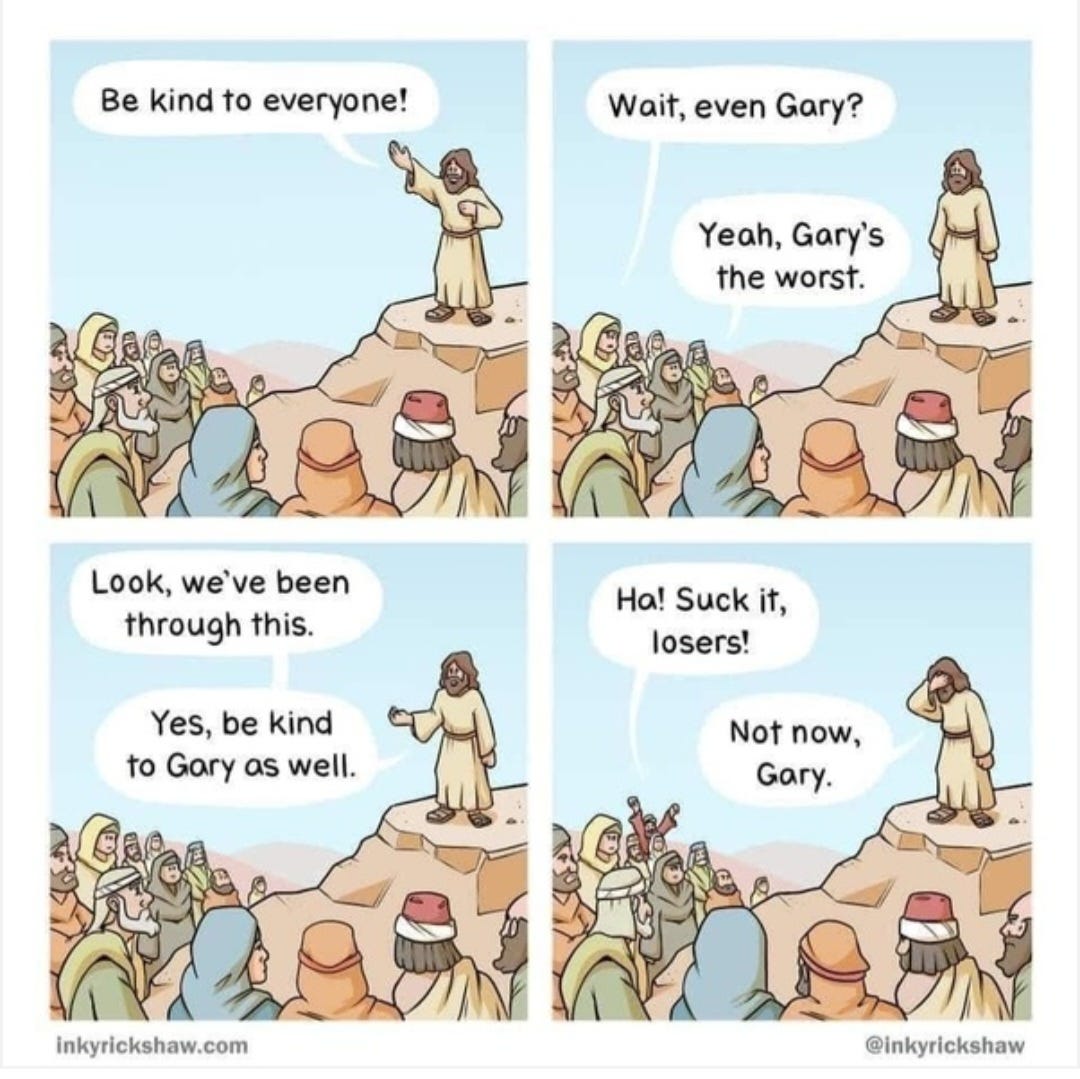Meme is Money
And there is nothing funny about that
"The first thing we do, let's kill all the lawyers." This famous line was written by William Shakespeare over 400 years ago. The statement was uttered by Dick, the villainous character aiding Jack Cade in his quest to overthrow King Henry. If Shakespeare wanted to draw the comedic line out further, Dick would've added, "next, let's kill all the cartoonists." For when one is planning a coup, the first thing they must do is rid the realm of any protectors of law and order. Next, they most certainly need to eliminate any form of criticism. Since a picture speaks a thousand words, the next people to lose their heads must be the cartoonists.
For humor to work, there must be a hint of truth in the punch line. Therefore, in societies that protect freedom of speech, political satire is the mainstay of conscientious objection. In the old days just after I set the coffee maker brewing, I went to the front door to retrieve my morning newspaper. After a cursory review of the front page, I moved to the op-ed section of the newspaper. The first thing I read was the political cartoon of the day. One could tell a great deal about the editorial quality of a newspaper based on what political cartoon they allowed to be printed. If the newspaper led with Doonesbury, one could assume most of the op-ed articles would slant left. If however, the editor published a cartoon by Al Goodwin, there was a chance I may find an op-ed article to my liking.
The published cartoon was a quick barometer read on the type of opinions a newspaper would print. The only difference in my morning routine now, given that print media is dead, is I now begin my day with electronic news feeds and my fingers remain ink-stain free.
Gone are the days where newspaper companies and their editors direct and control political content. Now, thanks to the Internet and a plethora of media sites, everyone is a writer, everyone is a podcaster, and everyone is an editor. Most specifically, we are all editors as we curate content and conscientiously decide what we "like" and what we "re-post." Clever memes, so it seems, represent the bulk of our "likes" and "re-posts." There is an obsession in the West to create, post, and re-post content that receives affirming "clicks." Political humor and cat videos seem to be at the top of the click-baiting memes.
But not everyone thinks what we post is funny. In fact, Western governments are beside themselves trying to legislate freedom to meme out of existence. We should all be warned that shunning of humor is always the last thing taken from society prior to hearing the heavy jackbooted footsteps marching down the hall. For people who find humor objectionable, it always comes from a place of insecurity. Insecurity in their own beliefs or in the world about them. Ergo, the more totalitarian a state is the less one finds humor, at least humor presented in the public square. For totalitarianism is serious business, and serious business is never funny.
Case in point, Yakov Smirnoff escaped the former U.S.S.R. before he discovered that Cleveland was the butt of jokes on both continents:
Prior to modern the modern era of free speech protections, the most perilous position within a royal court was that of the jester.
Without free speech protections, people who are secure in their religious beliefs could not laugh and have fun with their own deeply held tenets. If there was no free speech, there would have been no Mel Brooks playing Moses.
And certainly, without freedom of speech, myself as a serious Christian could never share this light-hearted depiction of Jesus on the Temple Mount:
Posting memes on the internet has replaced the op-ed cartoons of yesteryear. Hitting "👍" or re-posting aliens one for or against political statements. Humorous cartoons have the power to persuade as they point out hypocrisy, excess and elitist thinking far more succinctly than a 1000-word essay. Humor, though highly subjective, is a powerful tool of persuasion. Humor, used in critical opposition to existing power structures, can sting. Afterall, who among us enjoys having our core principles mocked? The more insecure an individual, or society for that matter, is in their beliefs, the greater the push for censorship of speech becomes.
Insecure governments are now attempting to legislate humor from our modern public square. Just know, that they are not doing it out of conviction to the purpose of diverse dialogue or out of a fairness to present all sides of an augment. The push to limit free speech comes from a place of extreme insecurity. Insecurity that the policies they mandate and the laws they pass have equal protection and benefit for all. Insecurity in the position that they themselves are really at the core of the legislative work they do and not their constituents. Finally, governments attempting to limit free speech are doing so out of an insecurity that Nature and Nature's God have the ultimate authority over us and that our recompense in life lie at His feet and no other. Insecurity is at the base of limiting free speech, and there is nothing funny about that.




not sure how I became a subscriber.